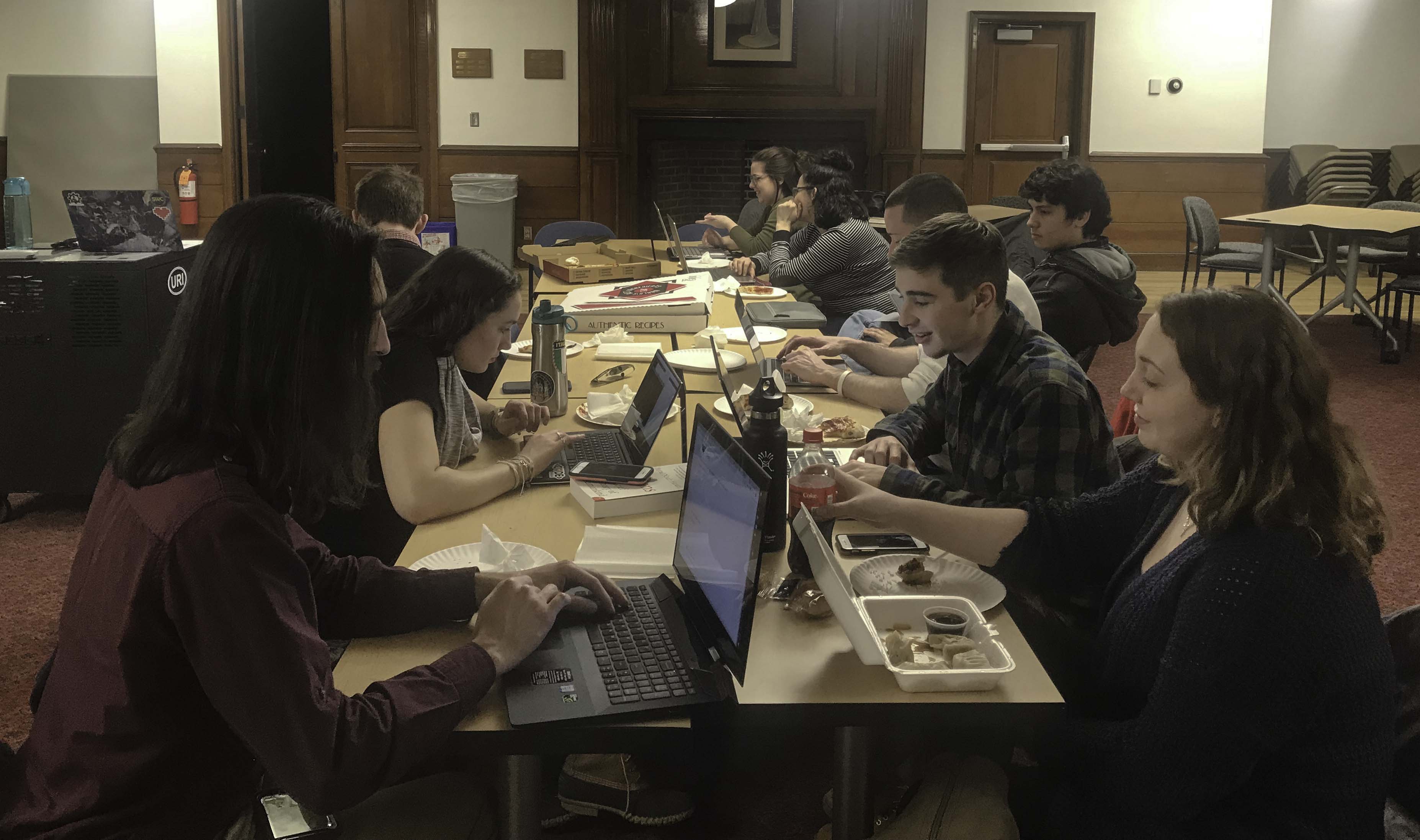Society for Women in Computing works to expose women to different areas of technology while developing professional skills and establishing a supportive and encouraging community. Photo courtesy of S.W.I.C.
Despite the high ranking, the department still looks for ways to improve
The University of Rhode Island ranked 46 out of 252 four-year public universities for graduating women in computer science and engineering, according to an article put out by The Chronicle of Higher Education.
Although URI’s ranking in the Chronicle of Higher Education is considerably high, professors in the Department of Computer Science are not satisfied.
“No. 46 is good, but I would like it to be better,” said Lisa DiPippo, the chair of the Department of Computer Science and Statistics. “Our number is 20.6 percent, that is not a number we aspire to. I guess one way to look at it, is we are number 46 out of 252 and we are only at 20 percent. What does that say about the problem in general?”
According to National Public Radio, the deep-rooted stereotype that computers are for males has caused a severe impact regarding the amount of women joining and computer science field and the amount of women staying in it. Through computer companies marketing their products to boys, they are encouraged to take up an interest in the field at a younger age. As a result, males often enter college with more experience in the field than females.
In addition, almost all of the computer science classes held at URI are male-dominated. A class with the least amount of gender disparity may be 10 percent female.
“In general, you could notice that because there are more male students, they tend to exude more confidence because they feel they belong there,” said DiPippo. “I think that sense of belonging is a big thing. It’s that sense of belonging that we try to encourage among all the students in the class.”
In the coming years, professors in the major hope to see more representation for minority groups in the major and see URI’s ranking rise.
“There is nothing about a keyboard that cares about what’s in your DNA,” said David Brown, a lecturer at URI in computer science. “There is no reason for any group to be underrepresented in computer science.”
The Chronicle of Higher Education reports that out of the 73 bachelor degrees in computer science awarded at URI in 2017-2018, 20.5 percent of them went to women. This is a 3.9 percent increase since 2009-2010.
The University of Rhode Island has made an effort to change the gender disparity in the computer science major. In the past, URI has sent students to the Grace Hopper Conference, which is an event centered around women in technology. The event holds a job fair, guest speakers and gives out awards as well as scholarships.
“Every student we have ever sent there comes back inspired. It’s like all of a sudden you’re not in the minority,” said DiPippo. “Everybody else there is a woman. The idea is that when you sent them there they think, ‘Wow, all these other woman are doing this, I can do it too.’”
In addition, senior computer science and mathematics major Allison Cheney started a club on campus called the Society for Women in Computing. The club exposes women to different areas of technology and creates a community for support and encouragement. In the past, the club has met with a girl scout troop and taught them about coding. This was done in hopes to spike their interest in computer science.
According to The National Center for Education Statistics, the percentage of women graduating with a bachelor’s degree peaked in 1983 at 37.5 percent. It was around this time that personal computers were invented. According to National Public Radio,
In the 1990s, senior researcher at UCLA Graduate School of Education and Information Studies, Jane Margolis found in her research that families were more likely to buy a computer for boys than they were for girls. Since the 1980s, women graduating with a bachelor’s degree in computer science has been steadily declining, according to Data USA’s statistics.
Other minority groups also have very low representation in the computer science field. According to Data USA, 55 percent of people working in computer science are white.
“Your stereotypical computer person is probably somewhat antisocial, white and male,” said Brown. “That is the stereotype. There is nothing about any of those things that qualifies you to do computer science.”

